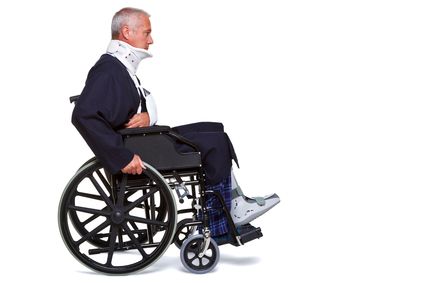A severe injury at work can take a long time to recover from. Sometimes, severe injuries cause permanent limitations even when you reach your maximum recovery. This article discusses what happens under Georgia’s workers compensation law when an injury becomes permanent.
Who determines whether an injury is permanent?
In a Georgia workers compensation case, there are two different types of people who decide that your injury is permanent:
- Doctors
- Judges

This permanent partial disability (PPD) rating is the doctor’s way of saying that you have a permanent impairment. Once it has been assigned, the rating entitles you to certain types of benefits in the future.
But, the workers compensation insurance company may not agree with the permanent partial disability rating assigned by the doctor. When they do not agree with the rating, this is where a workers compensation judge makes a determination about whether your injury is permanent.
The judge does this after a hearing is requested to make a determination about the permanence of your injury. This hearing allows both sides to present evidence and then the judge reaches a decision. This article provides some more detailed information about workers compensation court.
When does the doctor make the determination about my injury being permanent?
There is no set date when the doctor will make the determination about whether your injury is permanent. The law does not provide a certain date for this as far as days, weeks, months or years.
In most cases, the doctor determines the permanence of your injury when you reach a point in your recovery called maximum medical improvement (MMI). The idea behind maximum medical improvement is that the doctor does not expect additional medical treatment to make substantial improvement in your condition.
What does workers compensation pay for permanent injuries?
This is really a two part question. When you have a permanent partial disability rating from an injury, the insurance company should pay you permanent partial disability benefits. Usually, these benefits are paid to you on a weekly basis, although the insurance company can choose to pay them in a lump sum.
The number of weeks that you receive these benefits depends on the percent permanent partial disability rating that you receive. The higher the rating, the more weeks of benefits you will be paid. However, you also have to consider for which part of the body the rating was given because that determines the number of weeks as well.
The second part of the payment question is how much per week you will get paid. The amount per week depends on your average weekly wage at the time that your injury occurred. If you have received workers compensation temporary total disability benefits, the weekly amount of your permanent partial disability benefits should be the same.
 Do I qualify for a catastrophic designation if my injury is permanent?
Do I qualify for a catastrophic designation if my injury is permanent?
You might, but it will depend on the severity of the permanent injury. Under Georgia’s workers compensation law, there are six basic types of catastrophic injuries:
- Severe spinal cord injuries
- Amputations of the arm, hand, foot, or leg
- Severe brain or closed head injury
- Severe burns
- Blindness
- Injuries that prevent you from returning to your prior work and work available in substantial numbers in the national economy
This is just a general categorization of the types of catastrophic injuries. The actual definitions under the catastrophic statute are more specific regarding each type of injury.
But, as you can see, there are permanent injuries that would qualify for catastrophic designation. These include blindness, certain amputations, certain spinal cord injuries, certain brain injuries, and certain burn injuries.
In addition to this, many permanent injuries may qualify someone for a catastrophic designation under the sixth category because the permanent injury prevents them from performing work available in substantial numbers in the national economy.
If you want more information about catastrophic designation and the benefits of qualifying for it, this article has more specific information on that subject.
 Do I qualify for a catastrophic designation if my injury is permanent?
Do I qualify for a catastrophic designation if my injury is permanent?








